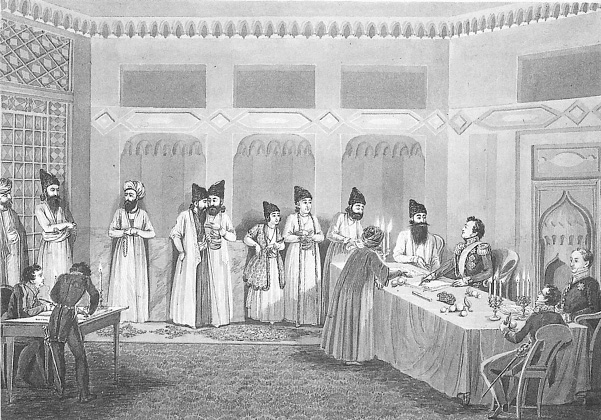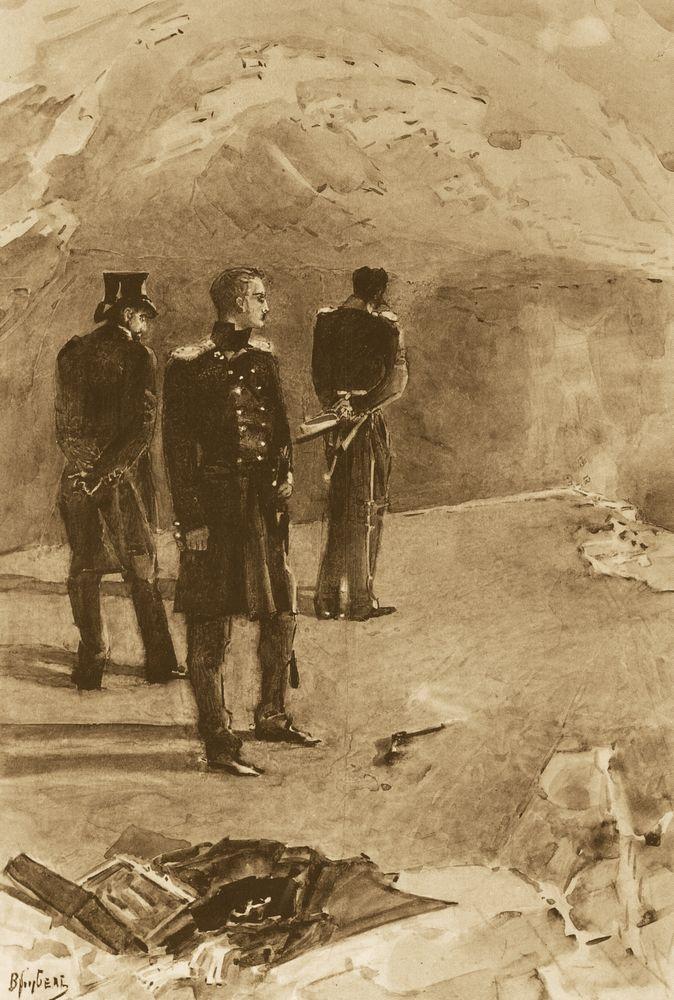|
A Journey To Arzrum
__NOTOC__ ''A Journey to Arzrum'' (russian: «Путешествие в Арзрум»; full title: ''A Journey to Arzrum during the Campaign of 1829'', «Путешествие в Арзрум во время похода 1829 года») is a work of travel literature by Alexander Pushkin. It was originally written by Pushkin in 1829, partially published in 1830, reworked in 1835, and then fully published in Pushkin's journal ''Sovremennik'' in 1836. The work recounts the poet's travels to the Caucasus, Armenia, and Arzrum (modern Erzurum) in eastern Turkey at the time of the Russo-Turkish War (1828–29). The Tsarist authorities never allowed Pushkin to travel abroad and he had only been permitted to travel as far as Tiflis (Tbilisi), capital of Georgia and Russian Transcaucasia. His unauthorized journey across the border into Turkey infuriated Tsar Nicholas I, who "threatened to confine Pushkin to his estate once again." Pushkin's text challenged, though did not entirely reje ... [...More Info...] [...Related Items...] OR: [Wikipedia] [Google] [Baidu] |
Alexander Pushkin
Alexander Sergeyevich Pushkin (; rus, links=no, Александр Сергеевич ПушкинIn pre-Revolutionary script, his name was written ., r=Aleksandr Sergeyevich Pushkin, p=ɐlʲɪkˈsandr sʲɪrˈɡʲe(j)ɪvʲɪtɕ ˈpuʂkʲɪn, a=ru-Pushkin.ogg; ) was a Russian poet, playwright, and novelist of the Romantic era.Basker, Michael. Pushkin and Romanticism. In Ferber, Michael, ed., ''A Companion to European Romanticism''. Oxford: Blackwell, 2005. He is considered by many to be the greatest Russian poetShort biography from University of Virginia . Retrieved 24 November 2006.Allan Reid ... [...More Info...] [...Related Items...] OR: [Wikipedia] [Google] [Baidu] |
Orientalism
In art history, literature and cultural studies, Orientalism is the imitation or depiction of aspects in the Eastern world. These depictions are usually done by writers, designers, and artists from the Western world. In particular, Orientalist painting, depicting more specifically the Middle East, was one of the many specialisms of 19th-century academic art, and the literature of Western countries took a similar interest in Oriental themes. Since the publication of Edward Said's '' Orientalism'' in 1978, much academic discourse has begun to use the term "Orientalism" to refer to a general patronizing Western attitude towards Middle Eastern, Asian, and North African societies. In Said's analysis, the West essentializes these societies as static and undeveloped—thereby fabricating a view of Oriental culture that can be studied, depicted, and reproduced in the service of imperial power. Implicit in this fabrication, writes Said, is the idea that Western society is developed, ... [...More Info...] [...Related Items...] OR: [Wikipedia] [Google] [Baidu] |
Works By Aleksandr Pushkin
Works may refer to: People * Caddy Works (1896–1982), American college sports coach * Samuel Works (c. 1781–1868), New York politician Albums * '' ''Works'' (Pink Floyd album)'', a Pink Floyd album from 1983 * ''Works'', a Gary Burton album from 1972 * ''Works'', a Status Quo album from 1983 * ''Works'', a John Abercrombie album from 1991 * ''Works'', a Pat Metheny album from 1994 * ''Works'', an Alan Parson Project album from 2002 * ''Works Volume 1'', a 1977 Emerson, Lake & Palmer album * ''Works Volume 2'', a 1977 Emerson, Lake & Palmer album * '' The Works'', a 1984 Queen album Other uses * Microsoft Works, a collection of office productivity programs created by Microsoft * IBM Works, an office suite for the IBM OS/2 operating system * Mount Works, Victoria Land, Antarctica See also * The Works (other) The Works may refer to: Music * ''The Works'' (Queen album), 1984 album by the British rock band Queen * ''The Works'' (Nik Kershaw album), 1989 album by ... [...More Info...] [...Related Items...] OR: [Wikipedia] [Google] [Baidu] |
Wikisource
Wikisource is an online digital library of free-content textual sources on a wiki, operated by the Wikimedia Foundation. Wikisource is the name of the project as a whole and the name for each instance of that project (each instance usually representing a different language); multiple Wikisources make up the overall project of Wikisource. The project's aim is to host all forms of free text, in many languages, and translations. Originally conceived as an archive to store useful or important historical texts (its first text was the ), it has expanded to become a general-content library. The project officially began on November 24, 2003 under the name Project Sourceberg, a play on the famous Project Gutenberg. The name Wikisource was adopted later that year and it received its own domain name. The project holds works that are either in the public domain or freely licensed; professionally published works or historical source documents, not vanity products. Verification was ini ... [...More Info...] [...Related Items...] OR: [Wikipedia] [Google] [Baidu] |
Russian Conquest Of The Caucasus
The Russian conquest of the Caucasus mainly occurred between 1800 and 1864. The Russian Empire sought to control the region between the Black Sea and Caspian Sea. South of the mountains was the territory that is modern Armenia, Azerbaijan, Georgia, and parts of Iran and Turkey. North of the mountains was the North Caucasus region of modern Russia. The difficult conquest of the intervening mountains is known as the Caucasian War. Multiple wars were fought against the local rulers of the regions, as well as the dominant powers, the Ottoman Empire and Qajar Iran, for control. By 1864 the last regions were brought under Russian control. Early history Russians first appeared in the Caucasus region in the 9th century when some Rus’ went down the Volga to trade around the shores of the Caspian Sea. This evolved into two great raids in 913 and 943. The last raid seems to have been in 1041. See Caspian expeditions of the Rus'. Also at this time the Rus’ held Tmutarakan on the Ta ... [...More Info...] [...Related Items...] OR: [Wikipedia] [Google] [Baidu] |
Armenian Oblast
The Armenian Oblast was a province (''oblast'') of the Caucasus Viceroyalty of the Russian Empire that existed from 1828 to 1840. It corresponded to most of present-day central Armenia, the Iğdır Province of Turkey, and the Nakhchivan exclave of Azerbaijan. Its administrative center was Yerevan, referred to as ''Erivan'' in Russian. History The Armenian Oblast was created out of the territories of the former Erivan and Nakhchivan khanates, which were ceded to Russia by Qajar Iran under the Treaty of Turkmenchay after the Russo-Iranian War of 1826-1828. Ivan Paskevich, the Ukrainian-born military leader and hero of the war, was made "Count of Erivan" in the year of the oblast's creation. The creation of the Armenian Oblast was encouraged by Russian officials with pro-Armenian tendencies who wanted to reward Armenians who had supported the Russian cause during the Russo-Iranian Wars. The Russians also believed that Christian Georgians and Armenians "preferred Russian rule" ... [...More Info...] [...Related Items...] OR: [Wikipedia] [Google] [Baidu] |
Richard Pevear And Larissa Volokhonsky
Richard Pevear and Larissa Volokhonsky are literary translators best known for their collaborative English translations of classic Russian literature. Individually, Pevear has also translated into English works from French, Italian, and Greek. The couple's collaborative translations have been nominated three times and twice won the PEN/Book-of-the-Month Club Translation Prize (for Tolstoy's ''Anna Karenina'' and Dostoevsky's ''The Brothers Karamazov''). Their translation of Dostoevsky's ''The Idiot'' also won the first Efim Etkind Translation Prize. Richard Pevear Richard Pevear was born in Waltham, Massachusetts, on 21 April 1943. Pevear earned a B.A. degree from Allegheny College in 1964, and a M.A. degree from the University of Virginia in 1965. He has taught at the University of New Hampshire, The Cooper Union, Mount Holyoke College, Columbia University, and the University of Iowa. In 1998, he joined the faculty of the American University of Paris (AUP), where he taught cours ... [...More Info...] [...Related Items...] OR: [Wikipedia] [Google] [Baidu] |
A Hero Of Our Time
''A Hero of Our Time'' ( rus, Герой нашего времени, links=1, r=Gerój nášego vrémeni, p=ɡʲɪˈroj ˈnaʂɨvə ˈvrʲemʲɪnʲɪ) is a novel by Mikhail Lermontov, written in 1839, published in 1840, and revised in 1841. It is an example of the superfluous man novel, noted for its compelling Byronic hero (or antihero) Pechorin and for the beautiful descriptions of the Caucasus. There are several English translations, including one by Vladimir Nabokov and Dmitri Nabokov in 1958. Grigory Alexandrovich Pechorin Pechorin is the embodiment of the Byronic hero. Byron's works were of international repute and Lermontov mentions his name several times throughout the novel. According to the Byronic tradition, Pechorin is a character of contradiction. He is both sensitive and cynical. He is possessed of extreme arrogance, yet has a deep insight into his own character and epitomizes the melancholy of the Romantic hero who broods on the futility of existence a ... [...More Info...] [...Related Items...] OR: [Wikipedia] [Google] [Baidu] |
IMDb
IMDb (an abbreviation of Internet Movie Database) is an online database of information related to films, television series, home videos, video games, and streaming content online – including cast, production crew and personal biographies, plot summaries, trivia, ratings, and fan and critical reviews. IMDb began as a fan-operated movie database on the Usenet group "rec.arts.movies" in 1990, and moved to the Web in 1993. It is now owned and operated by IMDb.com, Inc., a subsidiary of Amazon. the database contained some million titles (including television episodes) and million person records. Additionally, the site had 83 million registered users. The site's message boards were disabled in February 2017. Features The title and talent ''pages'' of IMDb are accessible to all users, but only registered and logged-in users can submit new material and suggest edits to existing entries. Most of the site's data has been provided by these volunteers. Registered users with a prov ... [...More Info...] [...Related Items...] OR: [Wikipedia] [Google] [Baidu] |
Lenfilm
Lenfilm (russian: link=no, Ленфильм) is a Russian production company with its own film studio located in Saint Petersburg (the city was called Leningrad from 1924 to 1991, thus the name). It is a corporation with its stakes shared between private owners and several private film studios which operate on the premises. Since October 2012, the Chairman of the board of directors is Fyodor Bondarchuk. History Before Lenfilm St. Petersburg was home to several Russian and French film studios since the early 1900s. In 1908, St. Petersburg businessman Vladislav Karpinsky opened his film factory Omnium Film, which produced documentaries and feature films for local theatres. During the 1910s, one of the most active private film studios was Neptun in St. Petersburg, where such figures as Vladimir Mayakovsky and Lilya Brik made their first silent films, released in 1917 and 1918. Lenfilm's property was originally under the private ownership of the ''Aquarium'' garden, which bel ... [...More Info...] [...Related Items...] OR: [Wikipedia] [Google] [Baidu] |
Soviet Union
The Soviet Union,. officially the Union of Soviet Socialist Republics. (USSR),. was a List of former transcontinental countries#Since 1700, transcontinental country that spanned much of Eurasia from 1922 to 1991. A flagship communist state, it was nominally a Federation, federal union of Republics of the Soviet Union, fifteen national republics; in practice, both Government of the Soviet Union, its government and Economy of the Soviet Union, its economy were highly Soviet-type economic planning, centralized until its final years. It was a one-party state governed by the Communist Party of the Soviet Union, with the city of Moscow serving as its capital as well as that of its largest and most populous republic: the Russian Soviet Federative Socialist Republic, Russian SFSR. Other major cities included Saint Petersburg, Leningrad (Russian SFSR), Kyiv, Kiev (Ukrainian Soviet Socialist Republic, Ukrainian SSR), Minsk (Byelorussian Soviet Socialist Republic, Byelorussian SSR), Tas ... [...More Info...] [...Related Items...] OR: [Wikipedia] [Google] [Baidu] |



